
Haunt
A haunted house is one that is scary, usually because of the presence of spirits or ghosts (and typically also in need of a paint job). Though the verb haunt does mean “to visit or inhabit as a ghost,” that’s not the original sense of the word. In fact, for centuries the word had a perfectly unfrightening set of meanings: “to visit often” and “to continually seek the company of.” In the 1500s, haunt began to mean “to have a disquieting or harmful effect on,” as in “that problem may come back to haunt you.” The meaning here is simply the lingering presence of the problem, not the possibly scary nature of the problem itself; it is applied to thoughts, memories, and emotions. The noun haunt retains this fright-neutral definition, “a place that you go to often,” as in “one of my favorite old haunts.”
A lingering idea, memory, or feeling may have led to the ghostly meaning of haunt, or one by a disembodied or imaginary spirit, proving that what we truly fear is in our head.
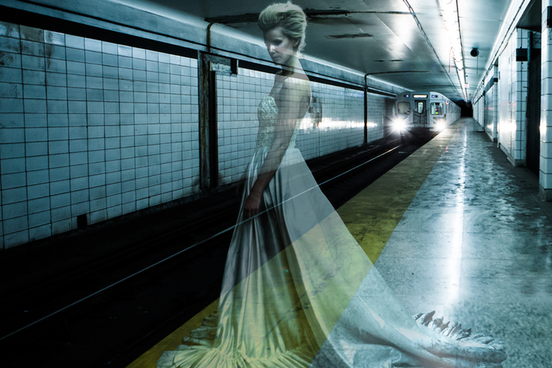
Ghost
Ghosts may be the most basic of Halloween costumes, and ghost is a basic English word, going all the way back a thousand years to the earliest recorded evidence of the language. It originally meant “vital spark” or “the seat of life or intelligence,” which is still used in the phrase “give up the ghost.” The most common meaning today, “a disembodied soul” or “the soul or specter of a deceased person” came next, a meaning based on the ancient folkloric notion that the spirit is separable from the body and can continue its existence after death.
Recently during a ghost tour at the restaurant, someone snapped a photo that appears to show a ghost hanging out of a third-floor window. People say the photo resembles a little girl with her hand stretched out, and that observation coincides with a ghost story from there.
— WJZ, 21 Oct. 2019
An older spelling of ghost, gast, is the root of aghast (“struck with terror, shocked”) and ghastly (“frightening”). The German word for ghost, geist, is part of the word zeitgeist, which literally means “spirit of the time.”

Vampire
On October 28, The Damned are hosting (and playing) the "night of a thousand vampires" at London's Palldium. The band is hoping to make it the largest gathering of vampires ever recorded, and are trying to get into the Guinness book of world records. The band is requiring that people come dressed as vamps, and upon arrival, you have to sign in to confirm your Drac-status. The band is playing two sets and you can see their statement below.
— John Gentile, Punknews.org, 22 Oct. 2019
As legends go, vampires are certainly ancient, but the word vampire is not. Legends of bloodsucking creatures go back to Ancient Greece, with harrowing tales of them rising from burial places at night to drink peoples’ blood before hiding from dawn’s daylight. These stories were especially popular in eastern Europe, and the word vampire originally comes from the Serbian word vampir, which then passed from German to French, coming to English in the 1700s.
The extended senses of vampire, “one who lives by preying on others” and a synonym of vampire bat, were both in use within a few decades.
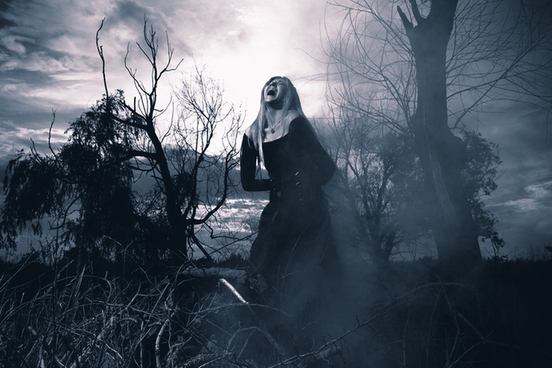
Banshee
Banshee came from combining the Gaelic words meaning “woman of fairyland,” but any positive associations with fairies ends there. Banshees are female spirits that, if seen or heard wailing under the windows of a house, foretell of a death in the family that lives there. Today the word is most frequently heard in the idiom “scream like a banshee” or “wail like a banshee,” which shows the power of myth and the imaginative power of language, since probably no one has actually heard one.
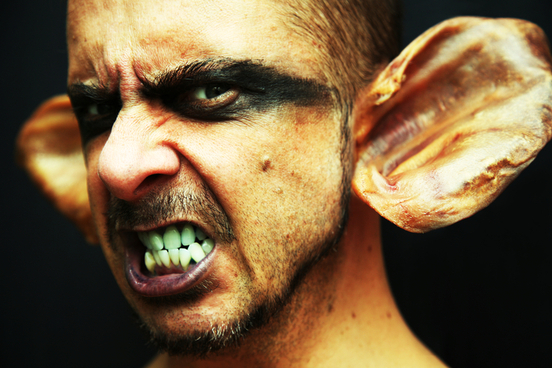
Goblin
Goblin is a word that has lost some of its menace over the centuries. When Milton used it in Paradise Lost, it packed a punch as another name for Death:
Whence and what art thou, execrable shape,
That dar'st, though grim and terrible, advance
Thy miscreated Front athwart my way
To yonder Gates? through them I mean to pass,
That be assur'd, without leave askt of thee:
Retire, or taste thy folly, and learn by proof,
Hell-born, not to contend with Spirits of Heav'n.
To whom the Goblin full of wrauth reply'd.
Art thou that Traitor Angel, art thou hee […]
Goblin means “an ugly or grotesque sprite sometimes conceived as evil and malicious and sometimes as merely playful and mischievous,” and sprite, a cute-sounding word, is simply a variation of spirit, originally meaning “soul,” and therefore a synonym of ghost, the oldest sense of which was also “soul.” The playfulness of goblin probably goes back to its roots in the Greek word meaning “rogue.”
Hobgoblin picks up on that idea of playfulness, and is usually a less threatening kind of spirit. The hob of hobgoblin comes from a Middle English nickname for “Robert” or “Robin,” and referred to a rustic or unsophisticated country dweller. Ralph Waldo Emerson used it famously in his essay “Self-Reliance”: “A foolish consistency is the hobgoblin of little minds.”
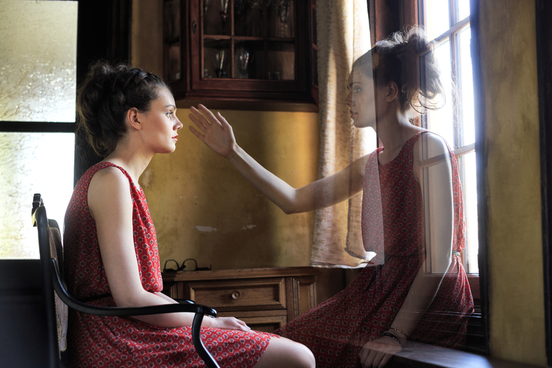
Wraith
The distinguishing quality of a wraith, compared with other ghosts, is its specificity. Originally, it referred to either the exact likeness of a living person seen as an apparition just before that person’s death as a kind of spectral premonition of bad news, or a visible apparition of a dead person.
The most famous spirit associated with the city would have to be the White Lady of the Berliner Schloss. Long, long before its current reconstruction, the halls of the palace were said to be roamed by a female wraith - the first reports hail from the mid-17th century.
— Michael Stuchbery, TheLocal.de, 16 Oct. 2019
When referring to a living person, it’s a synonym of doppelgänger, or the “spirit double” of a living person (as opposed to a ghost, which refers to the spirit of a dead person). Doppelgänger is now frequently used in a broader sense to mean simply “someone who looks like someone else.” When referring to a dead person, wraith is a synonym of revenant, which originally referred to a ghost of a particular person and subsequently has been used for a person who returns after a long absence.
A more rare synonym of both senses of wraith is fetch (which is unrelated to the fetch that means “go and get”).
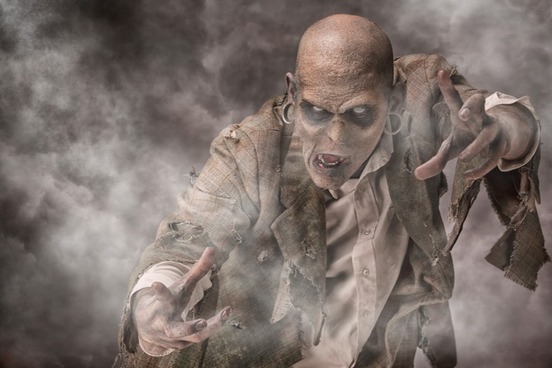
Ghoul
Ghoul is a relatively recent English word, borrowed from Arabic in the 1700s. Because it’s spelled with gh-, it looks vaguely like the Old English words ghost and ghastly (which share a common root in the Old English word gāst, meaning “spirit” or “ghost”). In fact, it comes from the Arabic word ghūl, derived from the verb that means “to seize,” and originally meant “a legendary evil being held to rob graves and feed on corpses.” The word was introduced to western literature by the French translation of Arabian Nights.
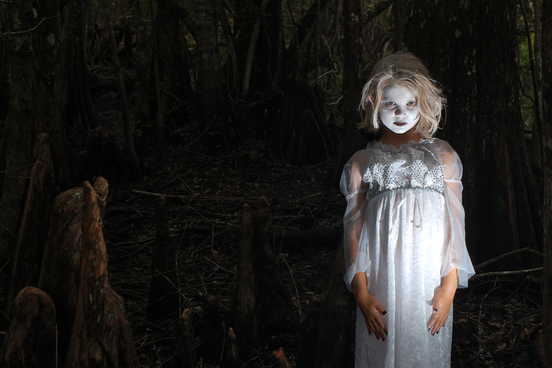
Specter
Specter originally meant “a visible disembodied spirit” in English—a good synonym for ghost.
Legend has it that a female specter who haunted the churchyard in Rathkeale, Limerick was so terrifying that all who looked upon her died soon after. A local man banished the ghost by slicing off her arm with his sword and praying for the rest of the night. In an odd coincidence in 2009, the Limerick Newswire reported that a tree stump in the churchyard contains the image of the Virgin Mary and Child and that hundreds of visitors had come to the area to pray.
— Irish Central, 24 Oct. 2019
But, unlike ghost, the notion of being visible is paramount in specter, which came to English from the French word spectre, which developed directly from the Latin word spectrum, meaning “appearance” or “specter,” itself based on the verb specere, meaning “to look.” Specere is also the root of many English words that have to do with appearance: aspect, conspicuous, inspect, perspective, and spectacle. It’s also a distant relative of spy—appropriately enough, since Spectre, using the British spelling, is the name of one of the enemy agencies in the James Bond novels (and the title of one the films).
Specter can also mean “a ghostly and usually fear-inspiring vision of the imagination”—in other words, something that haunts the mind.





